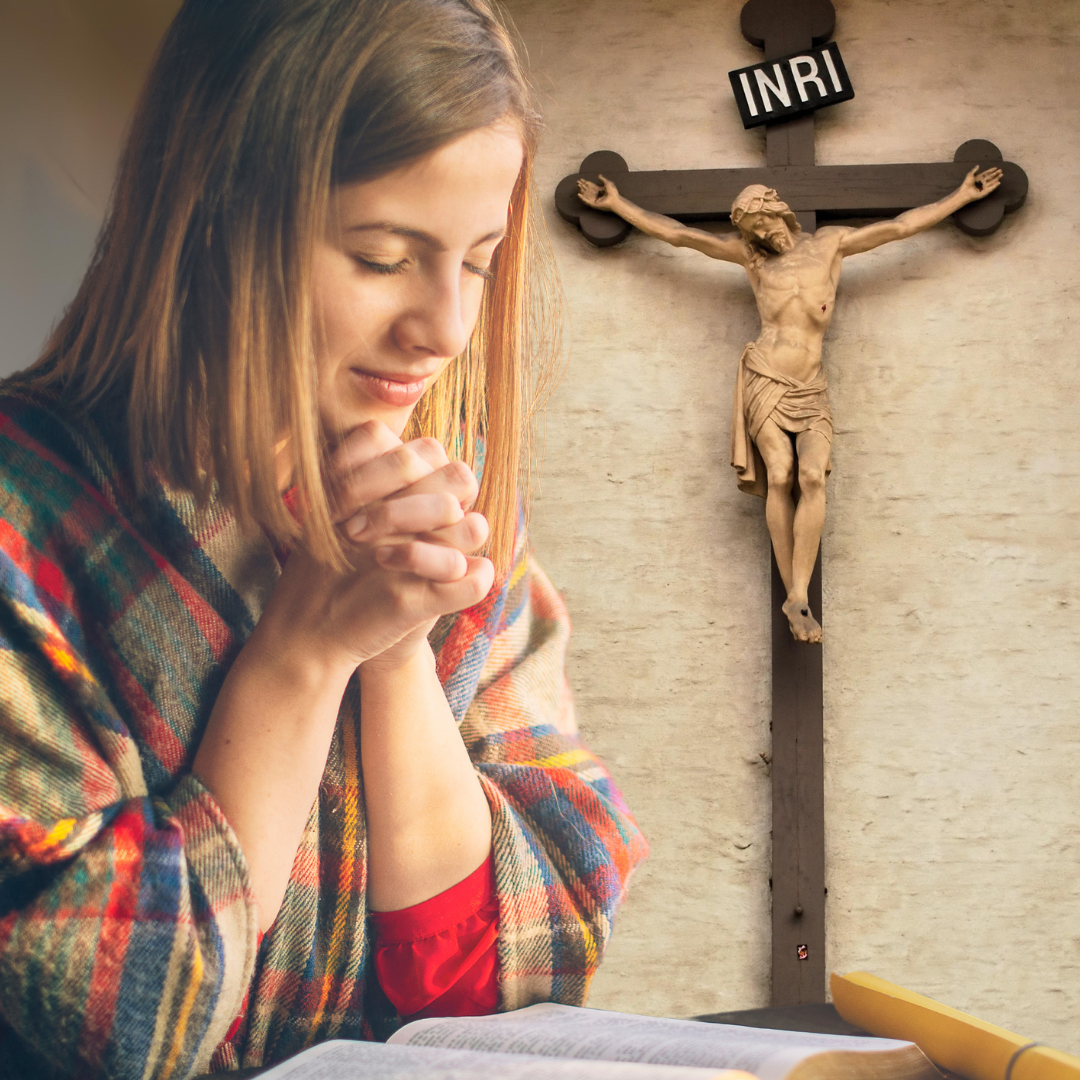As followers of Christ, we’ve been given a tremendous gift in the Communion of Saints: the men and women who have gone before us, who have run the race, who have won! The Church Triumphant!
We look at Saint John Paul II, Saint Thérèse the Little Flower, Saint Maximilian Kolbe, and countless more – and we see their heroic acts of holiness and virtue.
Then, we look at ourselves and our actions, falling in the face of the same temptations as yesterday. Losing our patience, neglecting our prayer, living life under the cry of “My will be done!” We have a long way to go.
But, when we look at the saints, what we often forget to see are the little things, the small actions each and every day--the tiny steps on the path to holiness. It’s the little things that prepare us for the big ones.
For centuries, countless saints have taught their followers a little practice that takes literally minutes every day: the examination of conscience or examen.
Saint Ignatius of Loyola, certainly one of the more well-known proponents of the examen, believed that it was a gift from God. Saint Josemaría Escrivá wrote:
“Examination of conscience: a daily task. Bookkeeping is never neglected by anyone in business. And is there any business worth more than the business of eternal life?”
So, what is an examen?
An examen, or daily examination of conscience, is a method of prayer that takes about five minutes at the end of each day. We start by prayerfully reflecting on our day, calling to mind our thoughts, words, and actions, and then we respond by expressing gratitude to God for His blessings, begging for mercy for our sins, and asking for the grace to live better tomorrow.
An examen is simply taking a few minutes to recognize God’s presence in our lives and respond accordingly.
To use another great quote from St. Josemaría Escrivá:
“Either we learn to find our Lord in ordinary, everyday life, or we shall never find Him.”
The beauty and power of a nightly examen is that over time, we grow in knowledge of self. We become more aware of the occasions that lead us to sin, the weaknesses that we must strengthen, and the virtues we need most of all. By design, this prayer gives the Lord space to shed His light on what we need to cut and where we need to grow.
The nightly examen is also a fruitful complement to regular confession. In praying a nightly examen, we call out where we fell short and sinned. We recognize our brokenness, not to wallow in it, but so that Jesus Christ, the Divine Physician, can heal us. Those healing graces are waiting for us in the Sacrament of Confession.
But why?
We hope that by looking backward at when we did or did not do God’s will, we can develop the skill of looking forward – recognizing His will and acting on it.
There’s a long road between where we are today and where we want to go: Heaven. By making a nightly examen, we invite the Lord into our daily lives. With His help, we can start to see ourselves as God sees us, and by His grace, we can respond to Him more quickly, more frequently, and more fervently.
This process is not something that just happens. And, it certainly doesn’t happen by our own power. We need to make time to reflect, to let God in, and to resolve to amend our ways. Without this kind of intentionality, we will just float along.
As G.K. Chesterton wrote:
“A dead thing can go with the stream, but only a living thing can go against it.”
So in this season of your life, how will you draw closer to the Lord? Build the habit of a nightly examen and see what happens.
Build the Habit
The Examination Journal is a tool to help you build the habit of praying a daily examen. It takes this method of prayer to the written page, serving as a guide, an accountability tool, and a launching point for bringing your joys and struggles to the Lord.


